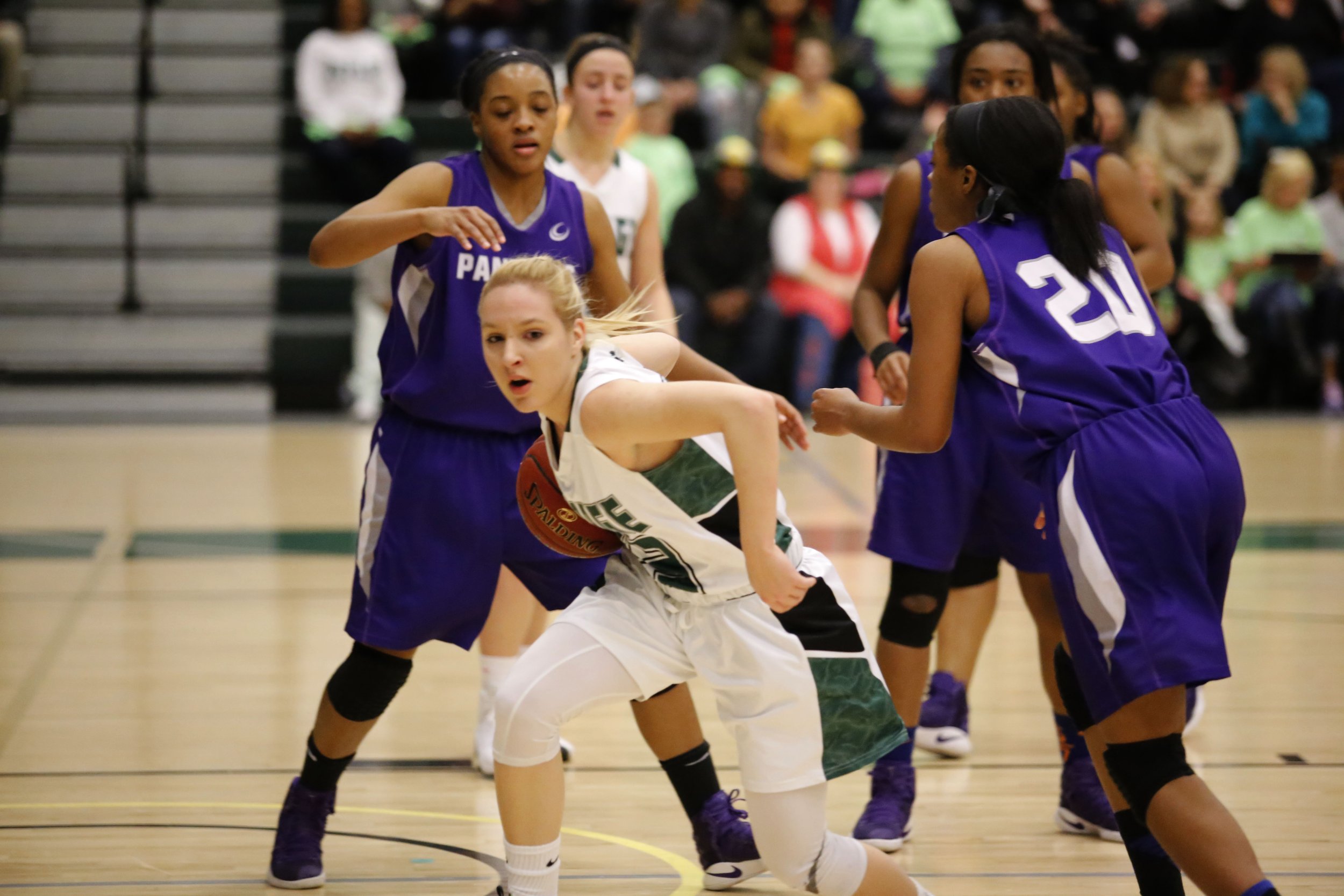Getting Started Early: What time does recruiting really begin?
There is a lot of talk about recruits getting offered scholarships early. But what is early recruiting and how will it impact you and your journey?
Defining early recruiting?
An early offer is anytime an athlete receives a verbal offer prior to the end of their sophomore year of high school. Regardless of your feelings about the subject, early recruiting does not appear to be going anywhere soon. The truth is that football, men’s and women’s basketball, and baseball are able to “offer scholarships” early to recruits prior to their junior year, but they can only do so by using a loophole in the recruiting rules.
Generally it is only high level programs, almost entirely from Division 1 who will be offering some recruits early. They do this to target top talent that they have identified from elite level competitions.
How does early recruiting work?
The loophole that college coaches use to recruit early starts with showing interest in a top athlete through a third party. Often they will try to go through a club coach more than a high school coach. They can tell this person about their interest in the recruit and ask the recruit to call them.
Coaches can pick up the phone if a recruit calls them, prior to their junior year, so they can essentially make a verbal offer once they get on that phone call. Communication can continue between recruits during the time prior to junior year with a recruit sending information, emailing, and calling the coach. Coaches however can only respond by picking up a phone call. Though this is not convenient, it allows coaches to recruit early as they chase after the top talent. Remember that verbal offers can be rescinded at any time so early recruiting is less about a binding agreement and coaches trying to get out in front of other schools to get the best players to choose them.
Coach Rob’s Note: By the time that an athlete like LeBron James was a freshman in high school, it was already widely known that he was the best athlete his age. College coaches recruit early to get a jump on the talented athletes they are “already” certain will become impact players at their level.
How does early recruiting work outside of football, basketball, and baseball
The NCAA regulations restrict all verbal offers to recruits in any other sports prior to the end of sophomore year. But college coaches are still identifying and targeting top talent prior to that time. College coaches still communicate with third parties like club coaches or high school coaches and scout elite level competitions. Essentially coaches can pass along the message that they are interested which at least puts it on the recruit’s radar to start considering the school as a serious option.
Why do coaches recruit young athletes?
The recruiting landscape is one where top talent is in short supply. Though there are many college athletes, only a small percentage, perhaps the top 2.5 percent of recruits in any sport are often game changers. Coaches know that they have the best shot to win championships if they get the best players and targeting them early gives them more of a chance to develop a relationship. Believe it or not most recruits commit based on the strength of a relationship, so coaches attempt to build that as early and often as possible once they know they want you.
Early recruiting has become a necessity for national championship contenders at the Division 1 level to compete. But most coaches are conflicted about it. That said, most college coaches even throughout the lower half of Division 1 are less incentivized to go after recruits early, because they won’t be getting many of the topflight recruits. And the athletes they will recruit are often going to need time to develop to show coaches they’re the right fit.
If you are fortunate enough to have a coach express interest in you early in a sport that allows early offers, you should follow up and reach out to the coach. Making a phone call to the coach early can go a long way in helping you determine what you want, and what you don’t want as you go forward in your recruiting journey. Recruits can almost always call coaches even though they cannot call back, so conversation cannot take place unless you are proactive.
Arguments against early recruiting
It is not hard to see the challenges of early recruiting. When coaches pursue young athletes, it accelerates their youth at a time that many people believe is too fast. For an athlete who has not started high school to be considering what colleges to speak with, is in many ways considered premature. It puts pressure for athletes to get into the most elite competitions at an early age and essentially professionalizes youth sports. Here are some of the biggest objections:
Athlete development takes a back seat – Elite competition and winning gets prioritized above the long-term success of an athlete. In some sports more than others, major injuries are occurring earlier and earlier as youth athletes focus on training hard when their bodies are still going through puberty.
Premature decision making – Young athletes ae not in the best place to discuss life altering decisions. Asking recruits prior to high school age to seriously discuss college can lend itself to them making decisions that are not well thought out. It goes almost without saying that what matters to a 13-year-old is different from what will be important at 17.
High stakes youth sports – Early recruiting puts pressure on youth athletes to focus on one sport early and focus on getting scouted rather than developing a love of sports. The reality is that most athletes will not get scholarships or play professionally so in many cases this is not a fair trade.
Academics can take a backseat – When a coach recruits a young athlete, there academic success is largely unknown. The grades one gets prior to high school are hardly indicative of their long-term success. As a result, coaches can incidentally push athletes towards overlooking the importance of their academics.
Under-recruited athletes get overlooked – Athletes who are not on a coach’s target list early can get overlooked. There are many opportunities to get recruited and my SCA Training Portal will help you find the right schools to get recruited by, but high-level coaches will almost always overlook athletes who don’t develop quite as quickly.
What is the NCAA doing about early recruiting?
New legislation by the NCAA is targeting early recruiting. Various sports are passing new rules to keep coaches from attempting to offer scholarships early. Most of this new legislation is centering around the start of junior year, that said football, basketball, and baseball still have received special recruiting status.
Going forward some sports can now offer official visits during a recruit’s junior year. This is a change that will help to simplify the regulations on what is allowed. However, many changes are decreasing coach contact. Coaches cannot have recruiting conversations at on campus camps and clinics anymore prior to an athlete’s junior year, and unofficial visits cannot be scheduled through a coach anymore for early recruits either. Overall, outside of the specific sport exceptions, no direct contact or recruiting conversations can occur between “early recruits” and coaches. These changes should help give recruits more time to develop without as much concern about worrying about contacting coaches at the middle school, or early high school ages.
What do early recruiting rules mean for you?
The new rules decrease what coaches can do to initiate the recruiting process early. But this will in many ways put more responsibility on an athlete and family to facilitate the recruiting process. Although contact has more restrictions, coaches can now offer official visits earlier which will mean more athletes will be able to commit earlier. These changes are most relevant still for high level programs in D1. Lower-level programs, especially those outside of D1 will often wait to see how the dust settles a bit before targeting athletes, so if you want to go to a major conference program and you believe you have what it takes, you should reach out to express interest during your freshman or sophomore year. (Just know that schools cannot contact you back directly)
To know which schools are interested in recruiting you and how to get their attention once you do, work directly with me Coach Rob. So, no matter what stage you are at in your recruiting you can get the offers you deserve.
Coach Rob is a recruiting expert and the Founder of SCA Recruiting. He is also the author of the book Winning the Ship: How to Win the College Athlete Recruitment Game. Available now on Amazon.

“93% OF HS ATHLETES DON’T PLAY IN COLLEGE… BUT I WILL HELP YOU BEAT THOSE ODDS. I GUARANTEE IT.”


